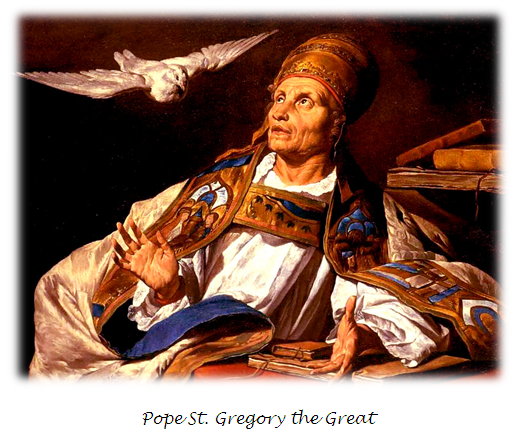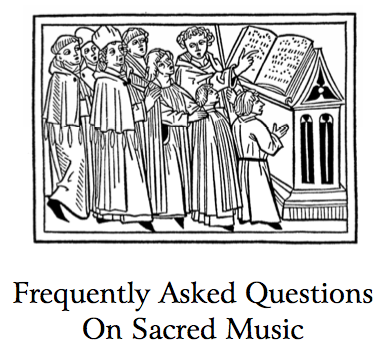Watch the Video – Sacred v. Secular
Very simply, music is the art and science of sound. Throughout time, music has been defined as one of the most important fields of academia. Music has been classified as one of the arts of the medieval quadrivium, along with arithmetic, geometry, and astronomy. The Catholic Church has named it “The Greatest of the Sacred Arts” because of its ability, even more than visual art, to evoke transcendence.
In this way, the very definition of music is not unlike the description of Sacred. Very simply, sacred means that which is set apart, special, or not for common use. Within Catholicism, the Liturgies give us clear examples of what is Sacred: liturgical vesture, furnishings, and architecture are the first which come to mind. Each has been given clear directives taken from thousands of years of study, dating back to the Traditions passed on by Jesus and His Disciples.
Musica Sacra, therefore is that music which exists solely for use within the Church and Her Sacred Liturgies. All else is defined as secular, or removed from the temple, common, unimportant in a liturgical sense. It is possible to hear Sacred Music on the radio, drawing our minds and souls toward the otherworldly, but it is non-sensical to utilize secular music from the radio, for example, to draw our minds elsewhere while we are attending Holy Mass.
Why, you ask? Isn’t it a matter of opinion and personal taste? Who is the authority?

The Church and Her Magisterium have given us clear guidance, beyond the above definitions. This question of secular versus sacred in Catholic Church music has been answered again and again over the centuries. Especially in our modern age of information, with Ecclesial Documents available at our fingertips, this dilemma should quickly abate.
Let us think about why Catholic Sacred Music is in need of restoration, making use of common responses one can hear today:
- I like upbeat music and need Mass to lift me up.
Music has the amazing power to evoke all emotion. Emotions are not fair criterion for what is Sacred or not. If this was the case, my opinion would be just as valid as yours. It also takes us away from what is truly important: the text.
- I prefer contemporary songs and hymns because it is what we know.
Contemporary music is truly a good thing, for as Psalm 96 says, we should “Sing a new song unto the Lord.” However, what is often meant by this term “contemporary” is music composed from 1970-1985 or so. Also, it is important to ponder the root of the word tempus or even “temporary,” as that is what most of this music is quickly becoming. The ancient hymns and chants live on, somewhat because of style, but mostly because of the text.
- What do the words matter, I like the sound and style.
Singing at Mass comes from the ancient tradition of singing the Psalms and other biblical texts. The Sacred has become infiltrated with secular texts, so much that the average person cannot tell the difference anymore. One example that comes to mind is the song: “Precious body, precious blood, here in bread and wine.” This has no biblical basis and is heresy. As Catholics, we believe the Holy Eucharist is the Body, Blood, Soul and Divinity of Jesus Christ. It is not a symbol. Because the tune is catchy and people like it, our brains shut down and accept it as Sacred. Secular means “outside the temple” and certainly this song and many other popular ditties should remain so.
These are just some of the many concerns. Notice they all involve “I, we, us, and me.” The goal for Sacred Music, or anything at Mass should never be “me.” Let us not think so much about ourselves; on the contrary, we should conform our lives to God. St. Thomas Aquinas, the great Doctor, philosopher, and theologian said: “All things are in God as their first model.”
In everything we do, most especially within the Mass, our foretaste of the Heavenly Liturgy, let us give our absolute best to God! Sacred Music is no exception!

